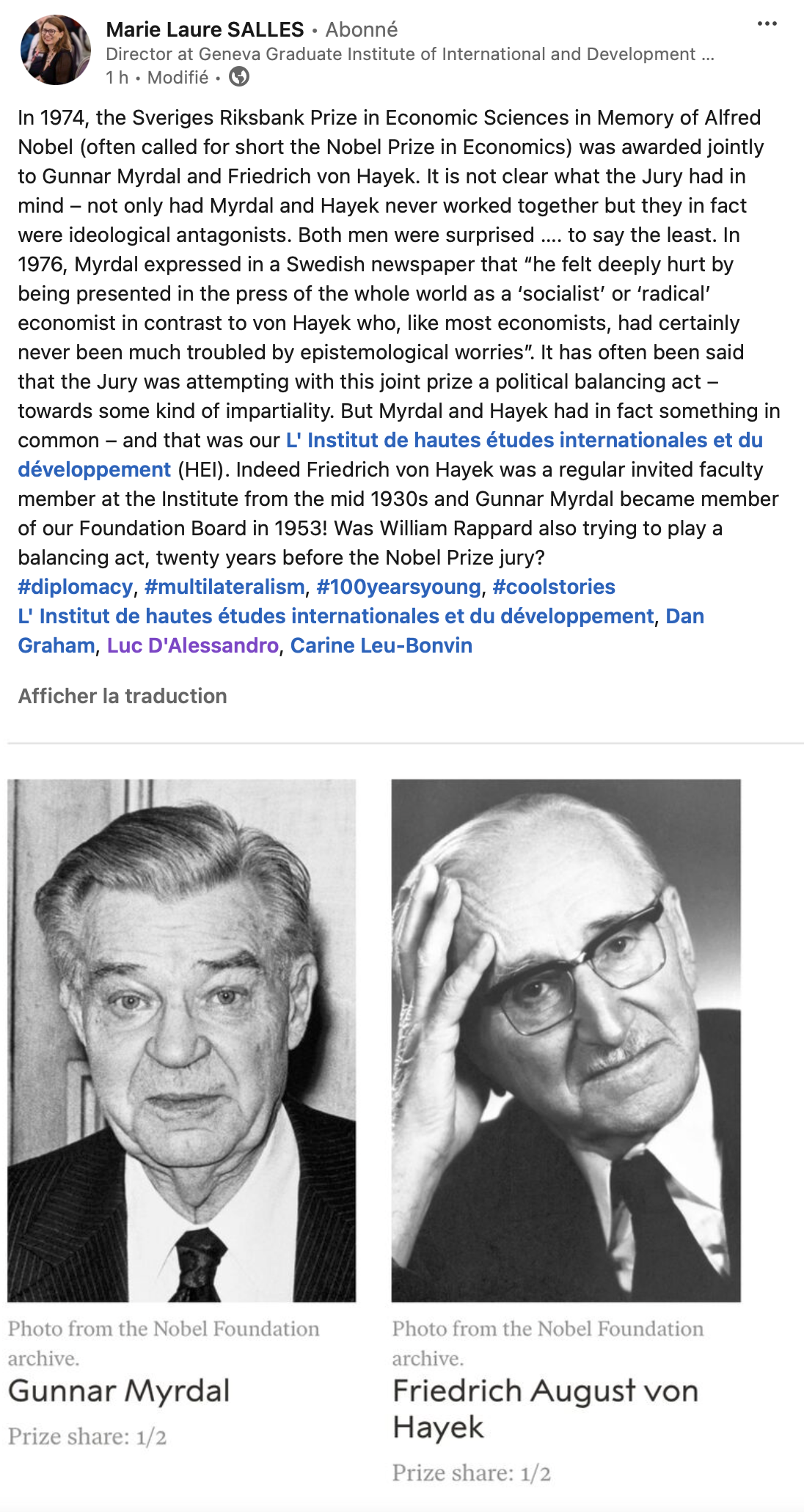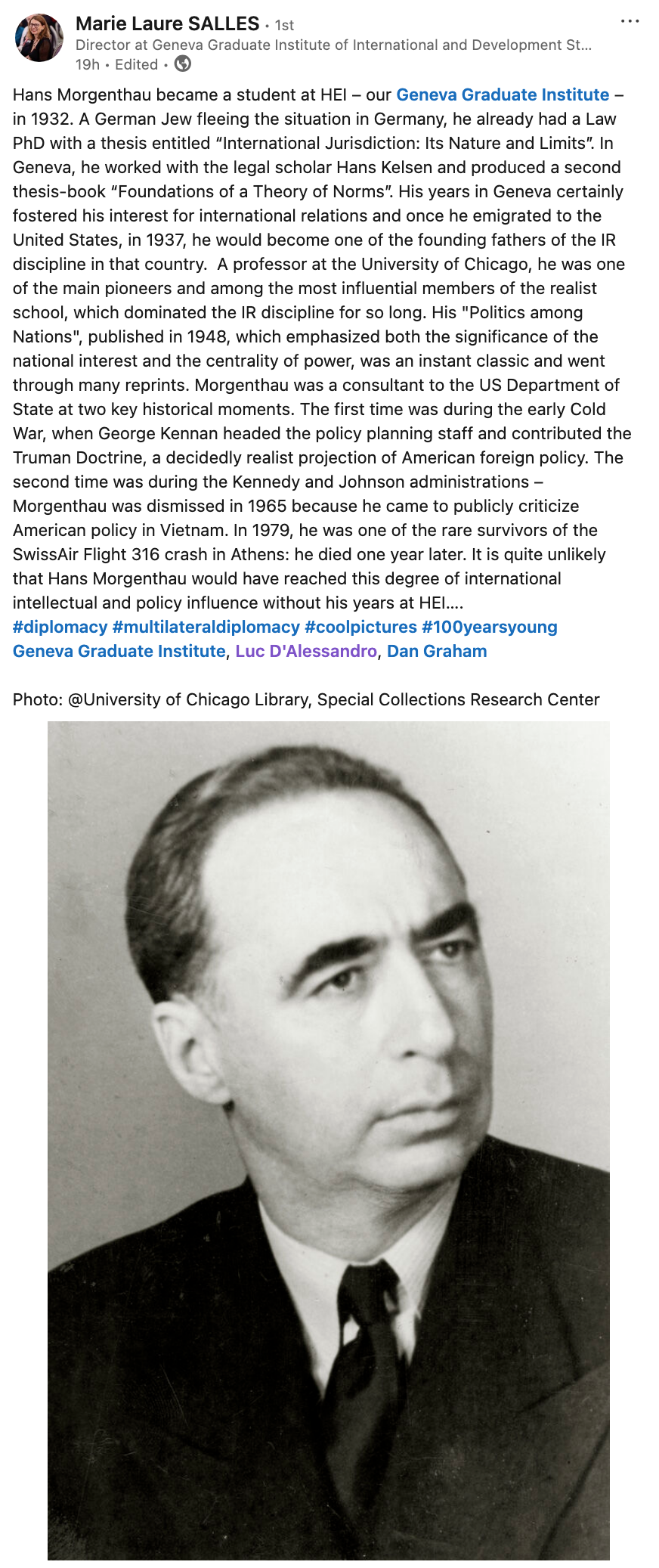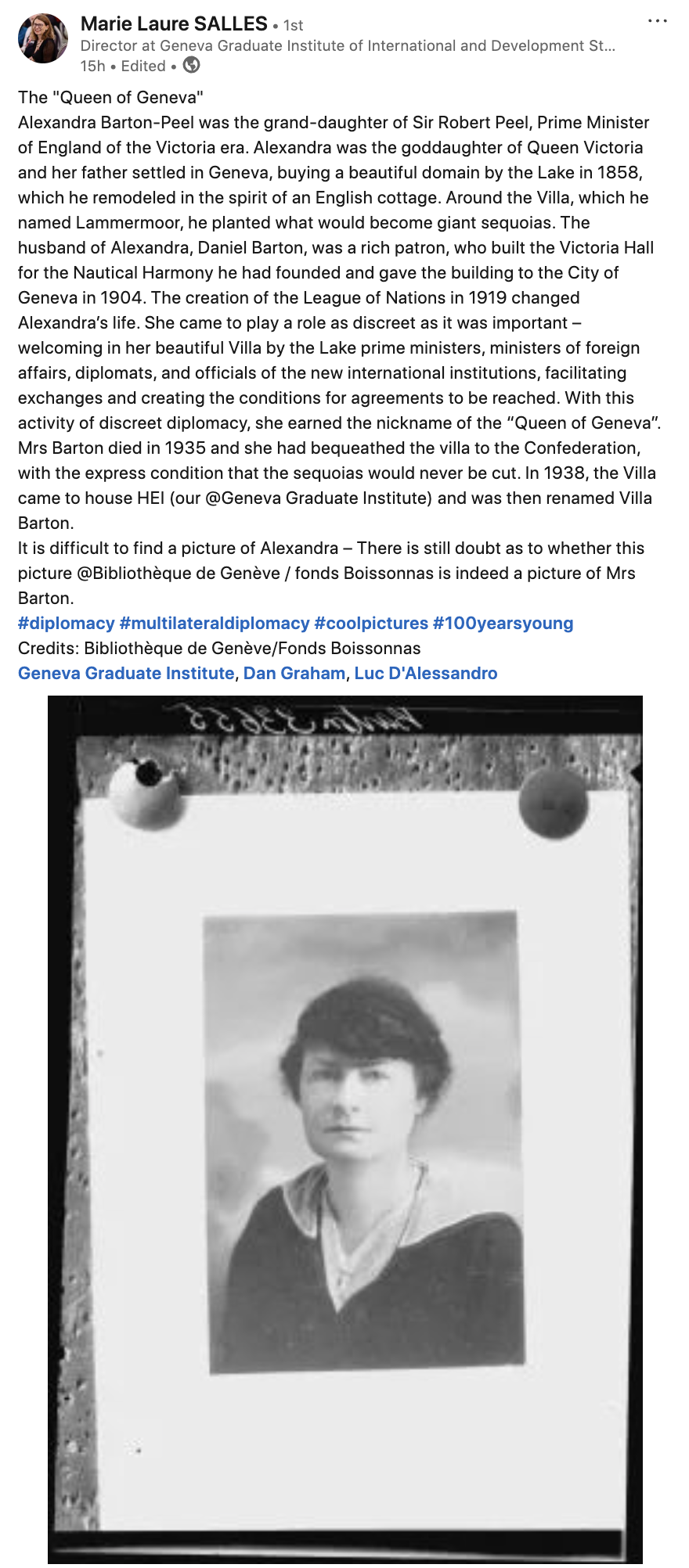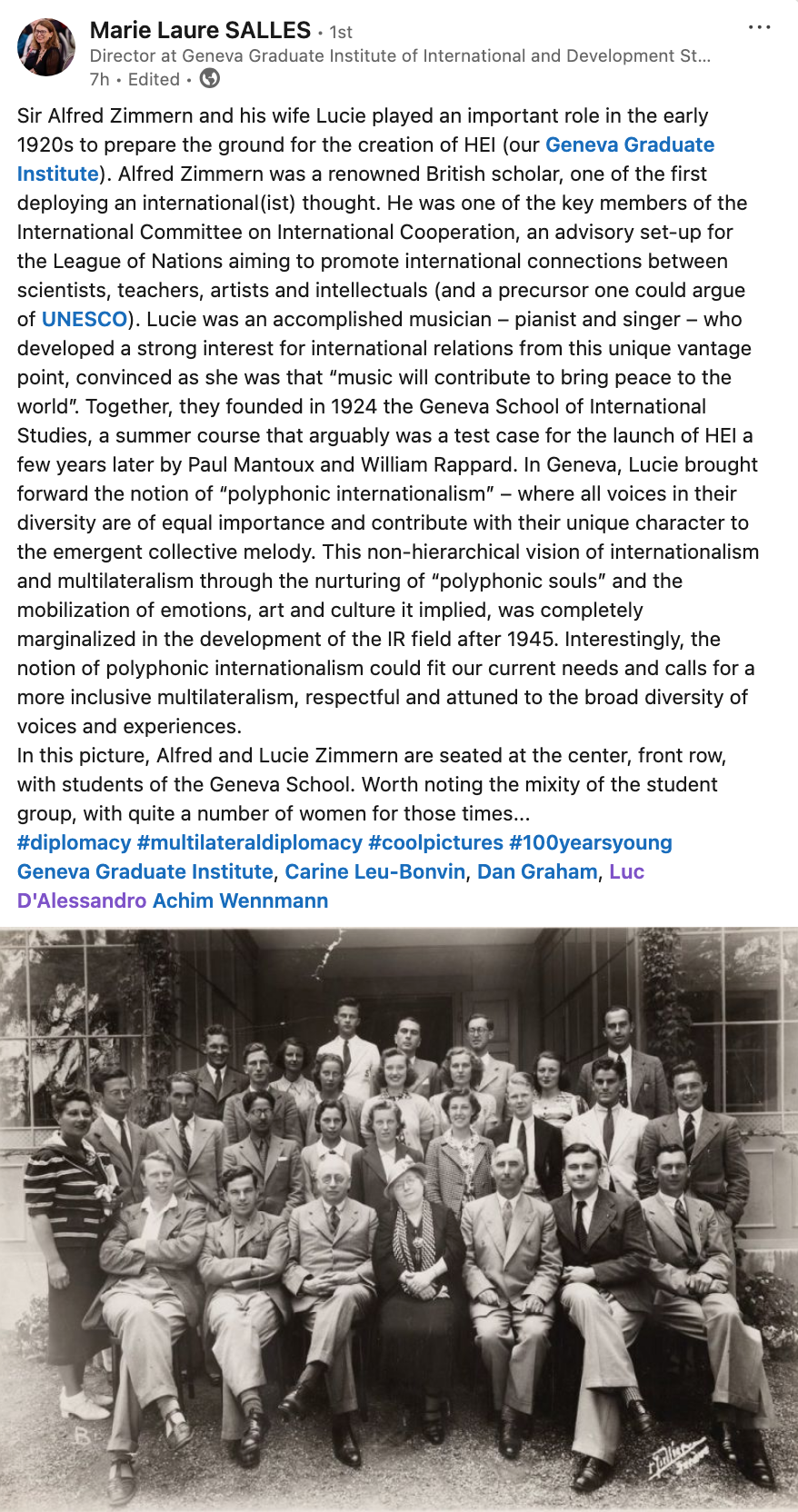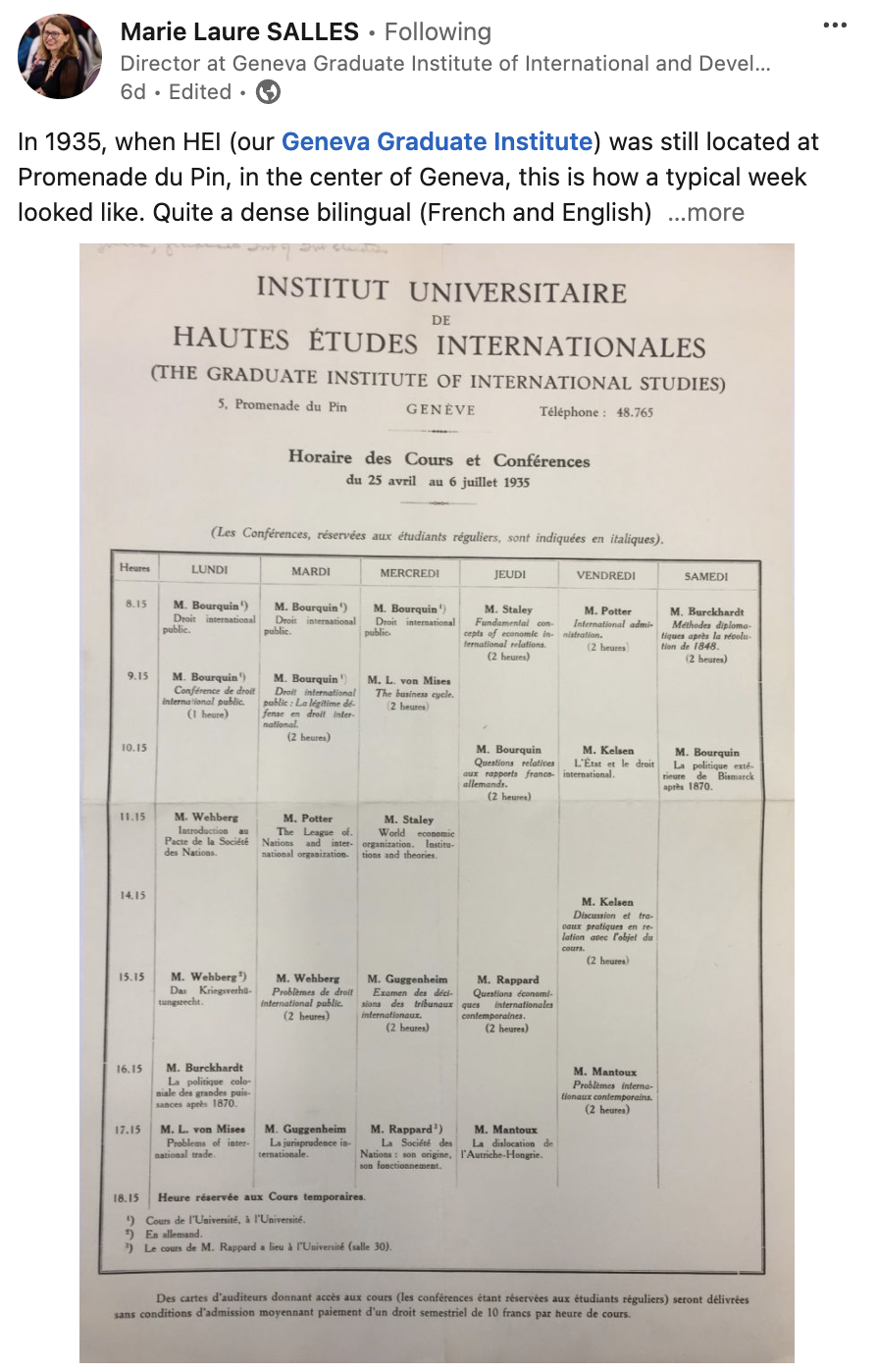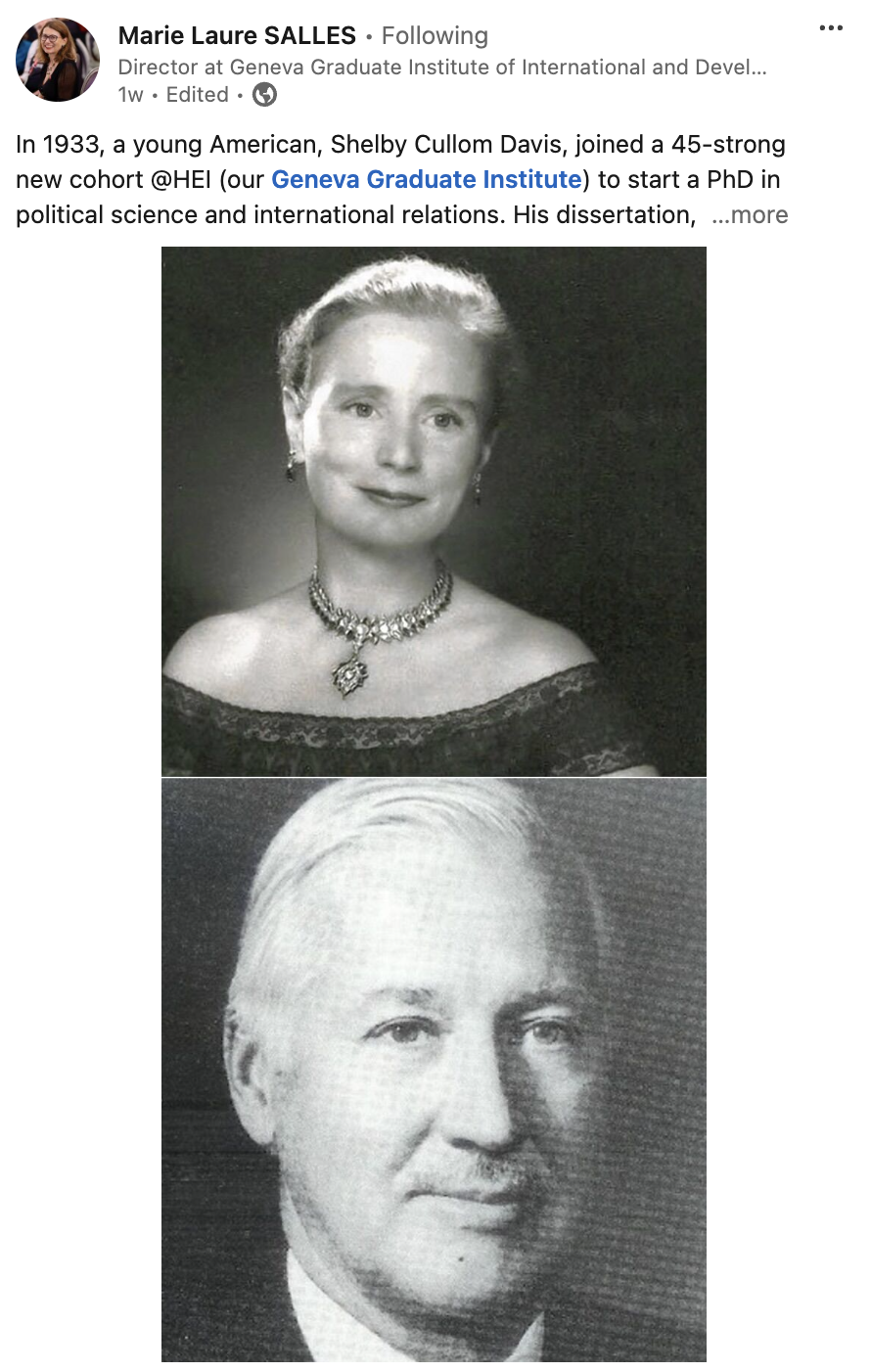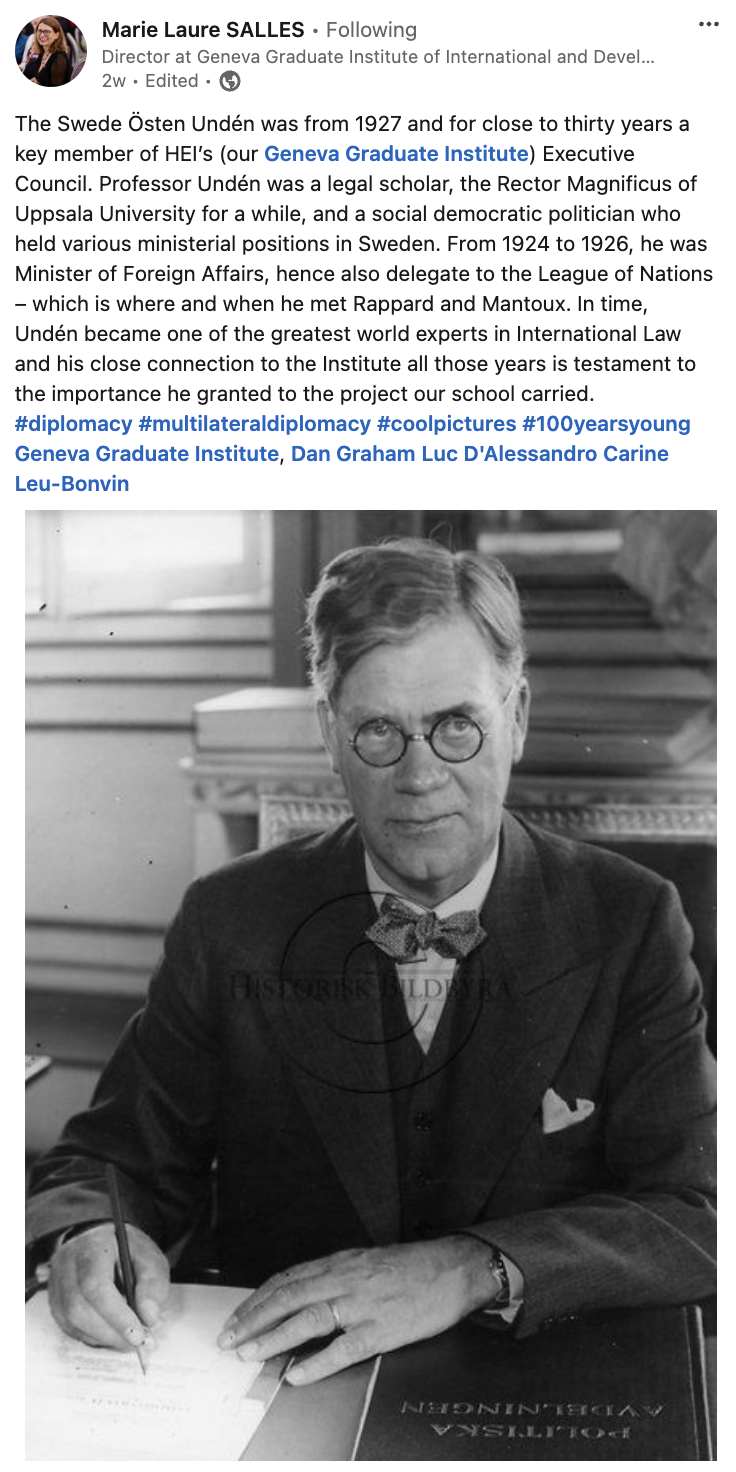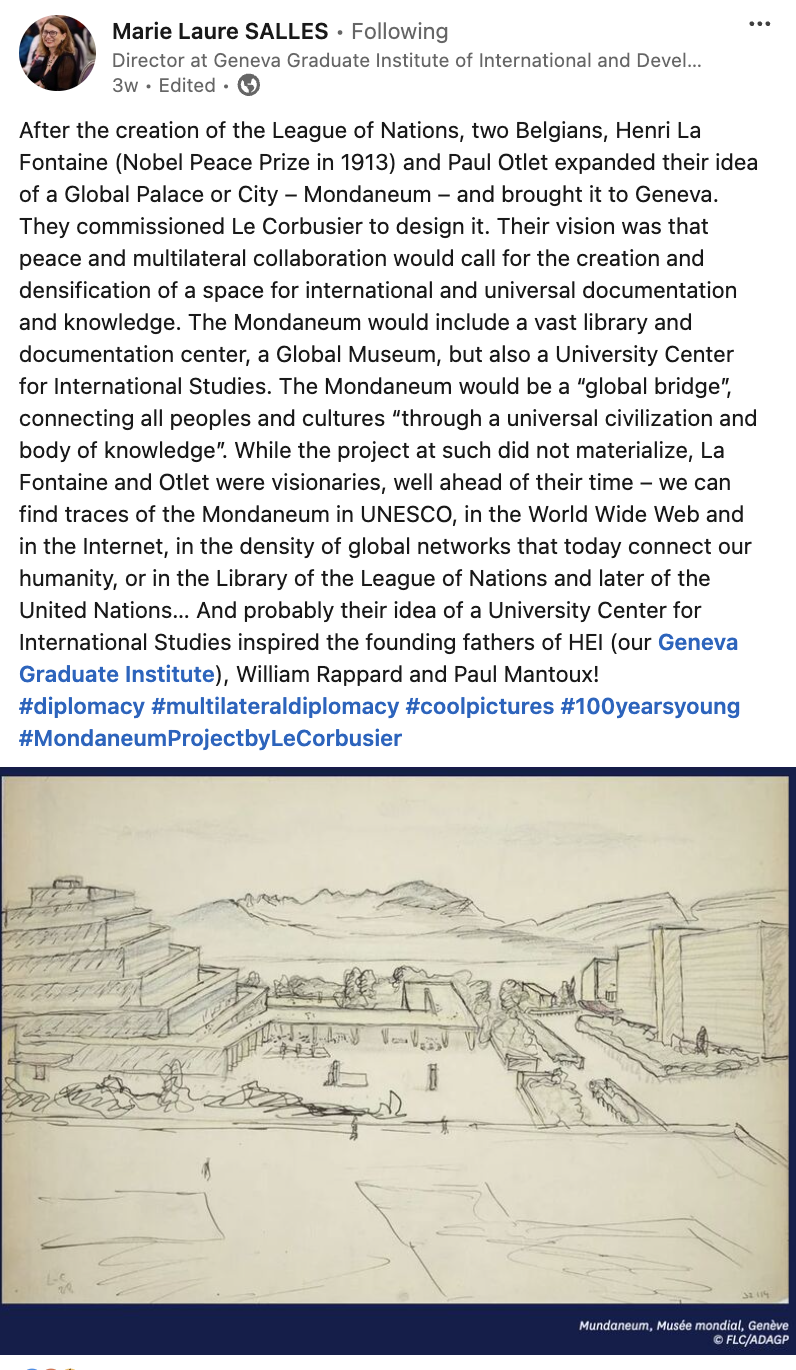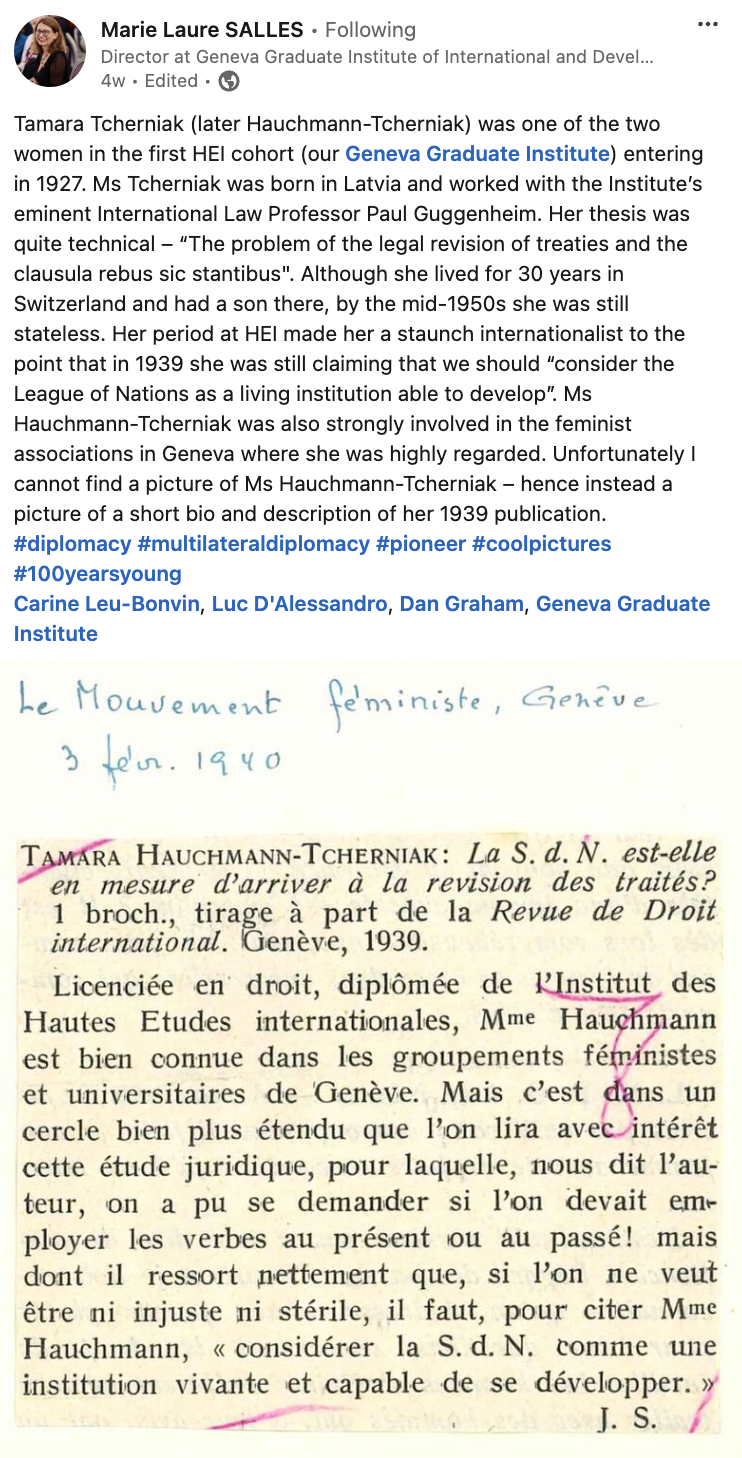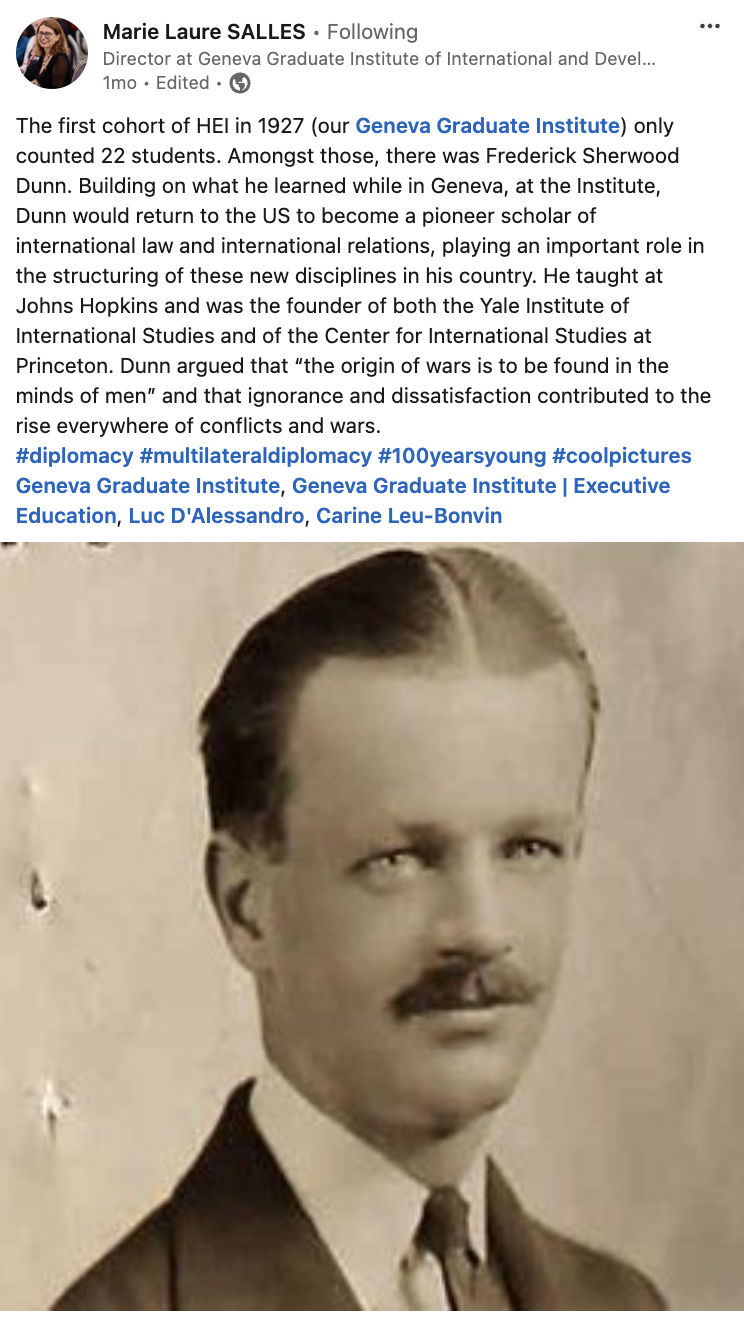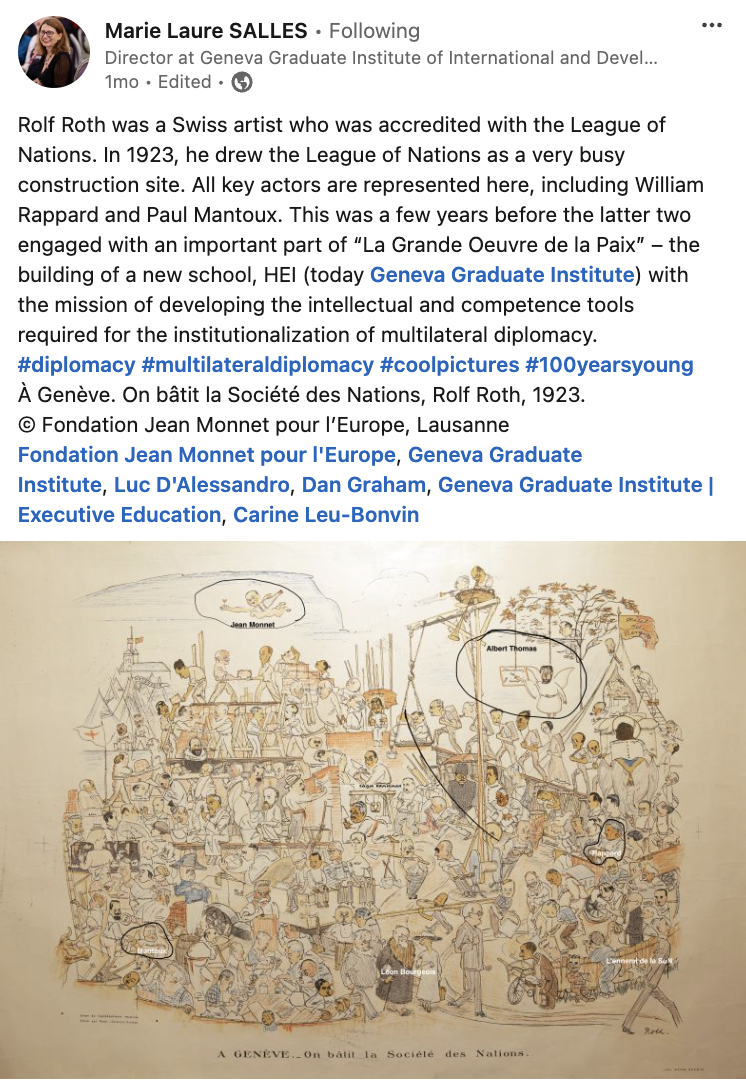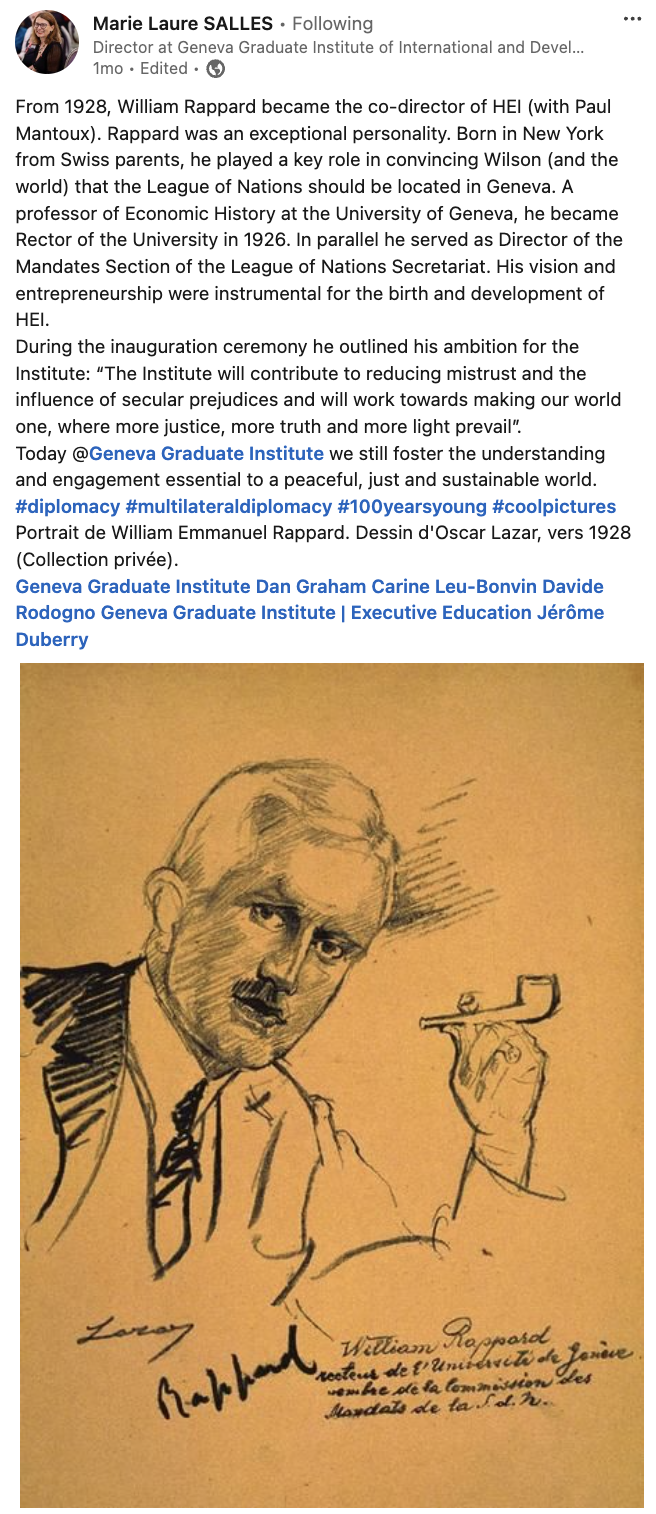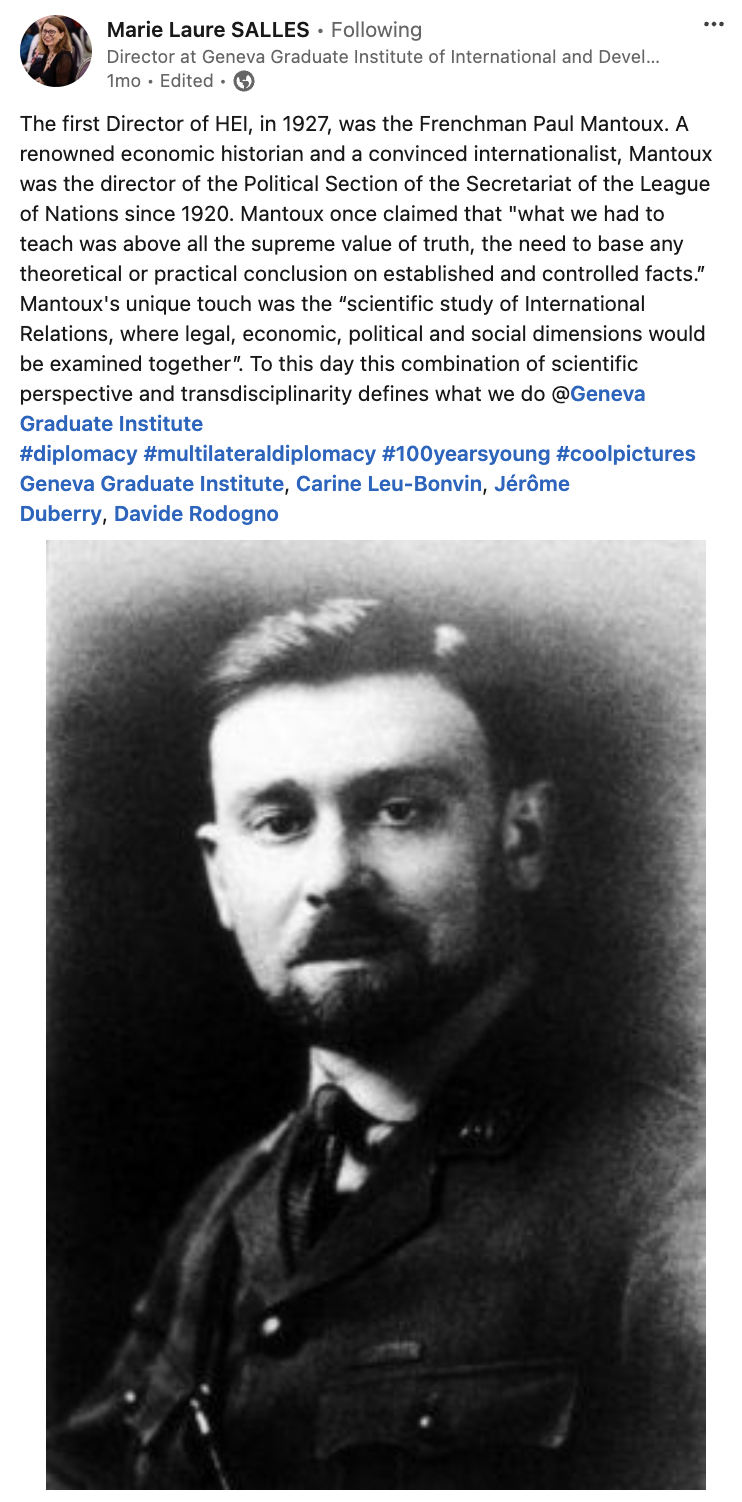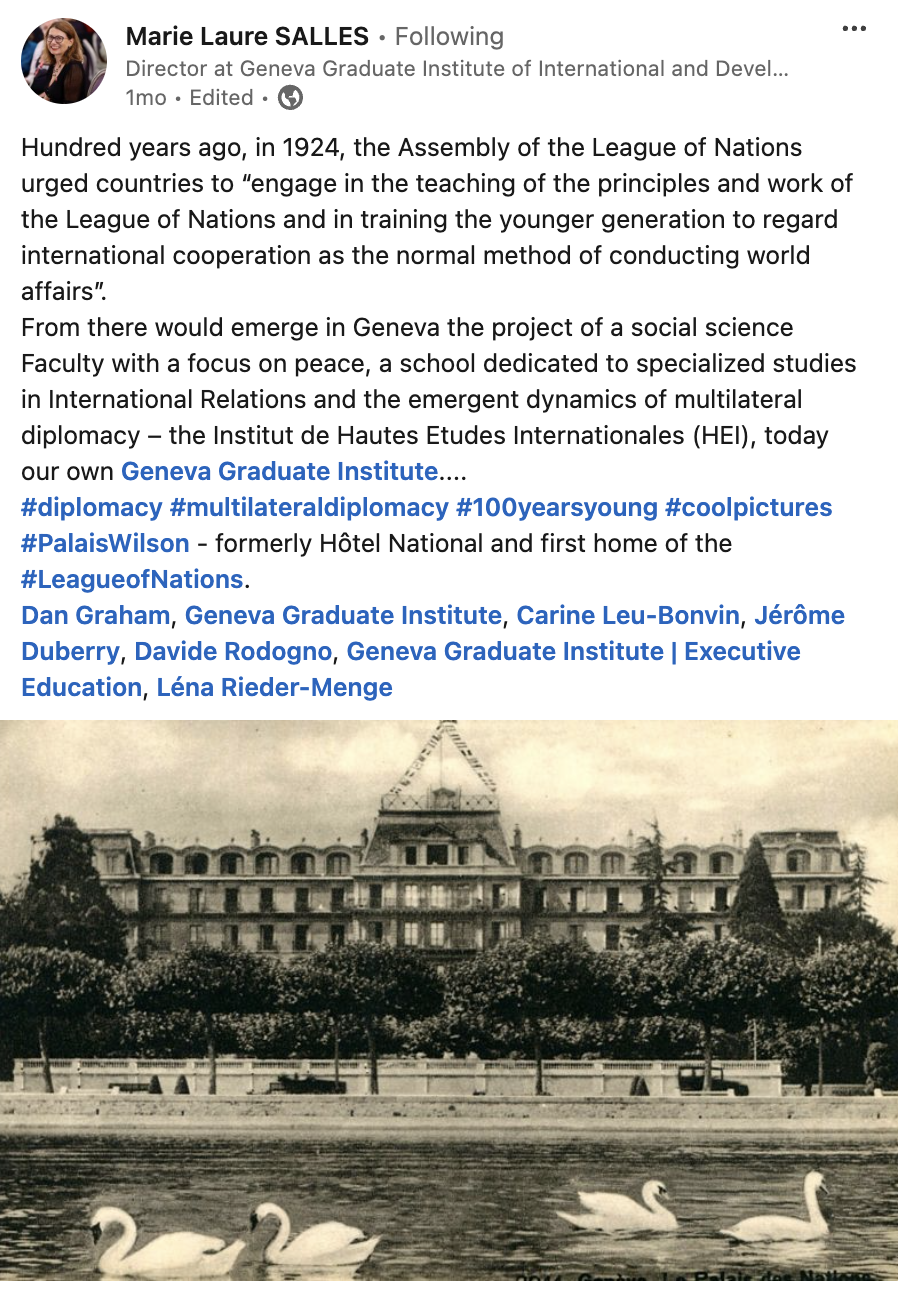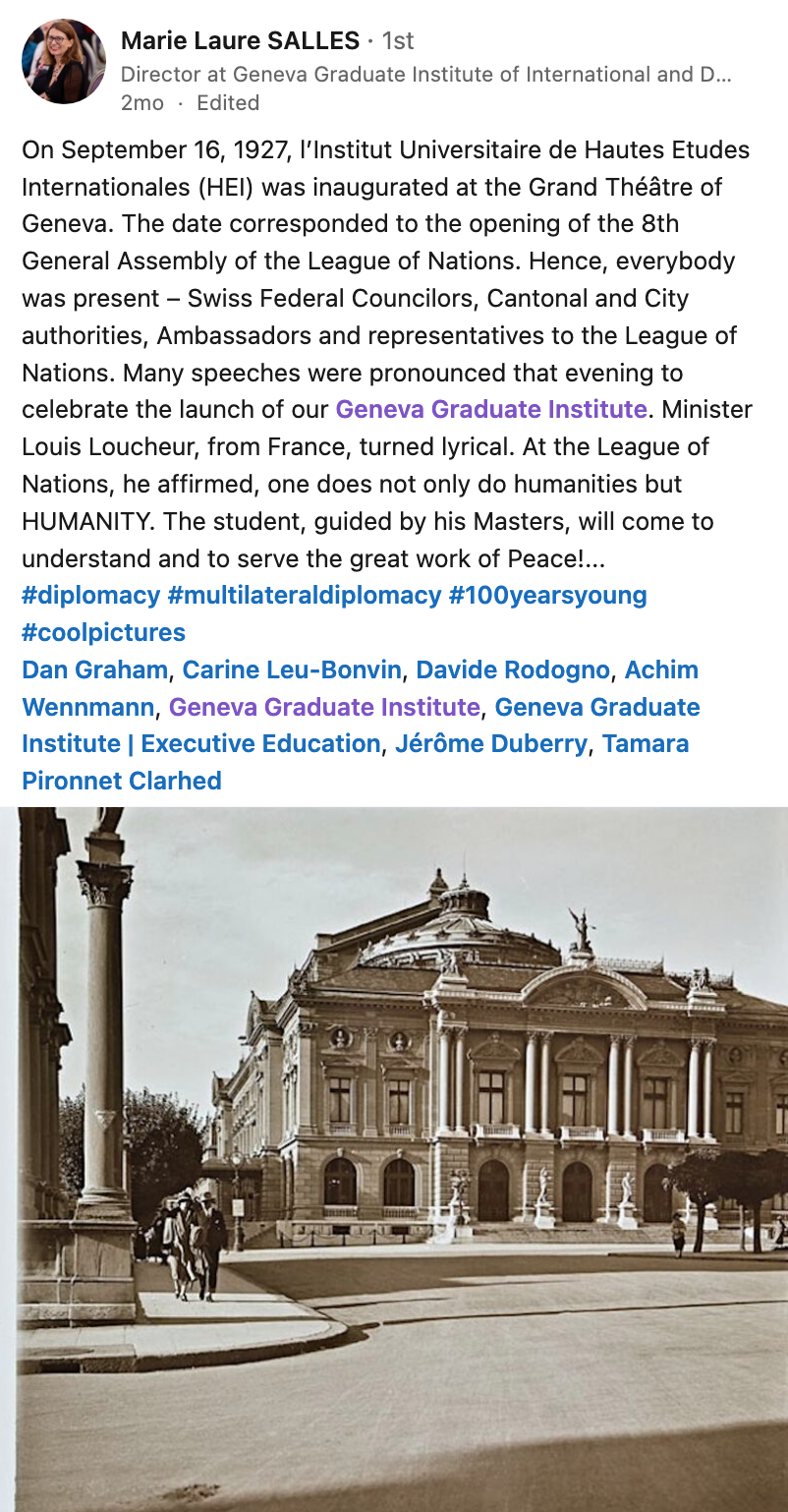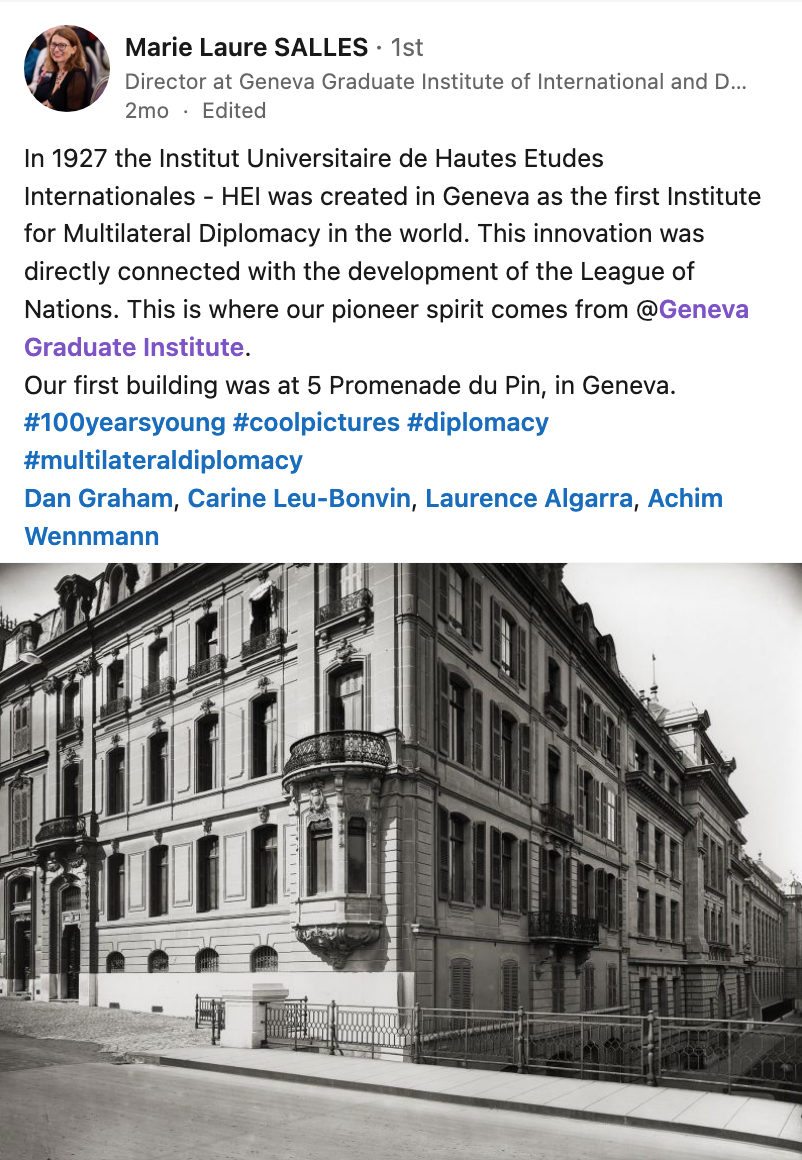A Call for Political Imagination: The Role of Geneva
Editorial of Marie-Laure Salles, Director of the Geneva Graduate Institute, for the spring 2025 issue of Globe, the Graduate Institute Review
The crisis of multilateralism facing the world today is made acute by the dynamics at work in Washington, but it is a crisis that has been in the making for some time.
Pax Americana and its Atlanticist projection, an era of relative stability and order since 1945, has essentially ended. This is perhaps for the best as the multilateral architecture that came with it had been showing major cracks for some time already. First, our multilateral system never adapted to the profound transformation of the geopolitical balance of power since its creation in 1945. Second, it is not fit to deal with the kinds of common existential challenges we are having to face today, think only of climate change or technology and artificial intelligence. Third, multilateralism as we know it has been delegitimised through what has become, over the last few decades, an increasingly visible pattern of double standards, with the permanent members of the Security Council weaponising their right to veto. Finally, the cracks have also come from within — the current multilateral architecture has repeatedly shown that it is wanting when it comes to efficiency and effectiveness.
What is more surprising and less expected, however, is that some of the most violent — and perhaps final — attacks have come not from a resentful periphery but from the historical champion and carrier of our current multilateral architecture, the United States of America. The question of the why and how is interesting in itself, but I focus here, rather, on the where to now and what is to be done.
The geopolitical re-alignment that is emerging, with the United States foregoing a deep historical alliance and bonding with Russia, has the potential to lead us towards a world where the rule of law inscribed in the idea of multilateralism would be replaced in the international arena by the rule of force — the kind of hard realism the United Nations were precisely built to avoid. We see that this re-alignment is also directly generating a major move towards global rearmament.
The combination of a weakening international rule of law and global rearmament is worrisome — and if we were to draw lessons from history, the surest path to an all-out war. According to UN estimates, our current stock of nuclear warheads could destroy humanity and other biological organisms on earth 55 times over. Hence, an all-out war today could imply the type of existential disaster that all nation-states in their right mind would want to avoid.
The good news is that a large majority of UN member states still believe that the existence of a world order defined by an international rule of law is the only path. Our common interest, across the world, in spite of our many differences, has two key existential dimensions: preventing the return of war, and ensuring the preservation of our planet and natural resources so that the next generations can live a life of dignity and peace.
We are undeniably at a pivotal moment that calls for courage and political imagination. We should see the moment as a clear call for collective action. A new coalition must emerge, crossing many boundaries, to work on a new multilateral project for peace and sustainability — a profoundly transformed multilateral architecture fit for purpose and ready to face the challenges of our times. Seen from an Atlanticist mindset, this coalition may be surprising if not unthinkable. However, this is precisely the time to act out of the box and to be creative. This coalition must bring together countries that cannot see their future without the existence of a structuring pattern of common rules, norms and principles. It must also be multi- stakeholder and extend to actors that are already active champions of a multilateral reinvention — cities in particular. Finally, it must mobilise a broad movement of academics and civil society ready to face the challenge of the time. Let’s call it, for now, a Global Coalition for Sustainable Peace!
This is where Geneva has a unique and important role to play. The long tradition and experience, the unique soil and irrigation that characterises the place (the Spirit of Geneva), and the physical colocation of many actors representing a large share of the multilateral system and almost all nations of the world, create both an opportunity and a responsibility for Geneva to contribute actively to the design of a reinvented multilateralism. Geneva must do some of the preparatory work and it must welcome the first series of official meetings. This mobilisation of Geneva needs to happen fast. It calls for political imagination and innovation, and intellectual and political courage. Geneva and International Geneva must be bold enough to seize this agenda and to make it theirs.
In his Memoirs, Jean Monnet affirmed that “in exceptional times, anything is possible — so long as one is prepared and has a clear plan to put forward when all else is confusion”. As we are indeed in an exceptional period, we must prepare ourselves and develop a clear plan, in the form of a courageous vision for united action and a concrete agenda for materialising this vision. We need a new global coalition to carry this agenda. The urgency of the challenge calls for courageous thought and action!
This article was published in Globe #35, the Graduate Institute Review.


















